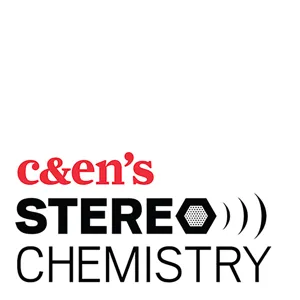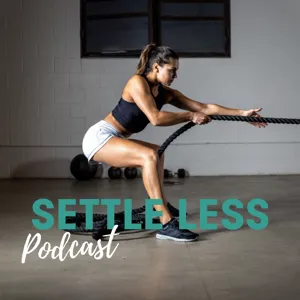BHS â 8A â California Nurse Shortage & Handel and the House Whisperer

Explore "drinkingwater" with insightful episodes like "BHS â 8A â California Nurse Shortage & Handel and the House Whisperer", "Microplastics pollute our drinking water: What are the risks?", "Cleaner and Safer Water for Optimal Health w/ Jane Emma", "Beaver State Podcast: Water Part 1 - The Clackamas Watershed" and "PFAS in Michigan" from podcasts like ""Bill Handel on Demand", "Stereo Chemistry", "Settle Less Podcast", "Beaver State Podcast" and "sustainabiliME"" and more!


Researchers reported finding microplastics in drinking water nearly 5 years ago, prompting California lawmakers to require monitoring of the state’s drinking water for the tiny particles. But in 2018, there were no standard methods for analyzing microplastics. So California regulators reached out to chemists and toxicologists from all sectors to develop those methods. They also sought assistance in developing a health-based limit to help consumers understand what the monitoring results mean for their health. In this episode of Stereo Chemistry, we will hear from some of the scientists leading those groundbreaking efforts.
A transcript of this episode is available at https://bit.ly/41g6uPa.
Credits
Executive producer/host: Kerri Jansen
Writer: Britt Erickson
Audio editor: Mark Feuer DiTusa
Story editors: Jyllian Kemsley, Michael McCoy, Ariana Remmel
Audience editor: Dorea I. Reeser
Copyeditor: Sabrina Ashwell, Heather Holt
Logo design: William A. Ludwig
Episode artwork: Shutterstock
Music (in order of appearance): “The Process” by Kevin Graham, “Goodness Gracious” by Louis Adrien
Contact Stereo Chemistry: Tweet at us @cenmag or email cenfeedback@acs.org.

In this episode of Settle Less podcast, host Anna Wasag interviews Jane Emma, founder of The Good For Co. Jane is passionate about educating the public about clean water and it's great benefits on your health in the short and long term. Follow Jane on social media @thejaneemma.
This podcast is for those who are high achievers and big dreams. You know what you want and refuse to settle until you get it. You should expect to gain information that is based upon personal her and her future guest's life experiences, self-development, scientific research and data. All guests hosted on this platform will be subject to a screening process that will qualify them to speak on this show. She believes you deserve the best information so she is going to do everything to hold to a high standard of excellence and integrity. Be sure to subscribe and share with your family and friends!
SHOP FOR WATER FILTERS------>thegoodforco.com
Code: ANNAWASAG saves you 15% off
Settle Less, Demand MORE! Visit Settleless.com Let's Connect Across Social Media: Instagram: @Anna.Wasag) • Instagram photos and videos Facebook: Anna Wasag | Facebook YouTube: Anna Wasag - YouTube
LinkdIn: Anna Wasag | LinkedIn
Rate, review and SUBSCRIBE on Apple Podcasts
If you enjoyed this episode then please consider sharing this to your social media or leaving a rating and review of the Settle Less Podcast.

Oregon’s rivers, streams, and aquifers support a wide range of benefits for both humans and the environment—sources of water for drinking, agriculture, recreation, and essential habitat for fish and wildlife. A clean and reliable source of water is critical for meeting Oregonian’s basic needs and for supporting Oregon’s economy, but it all hangs under the shadow of climate change. In this episode, we talk to ODFW's Ben Walczak, Clackamas River Water Provider's Kim Swan and PGE's Nick Ackerman about a partnership to tackle the impacts of drought.

Today I’ll be talking with Abigail Hendershott, Executive Director at EGLE for the Michigan PFAS Action Response Team. Over the past few years, PFAS has become a large concern in waterways and drinking water especially in the state of Michigan, so I’m really interested in learning more about what PFAS is, why it’s a problem, and what the State of Michigan is doing about it.
Follow us on social media @sustainabiliME.pod
MI PFAS Action Response Team: https://www.michigan.gov/pfasresponse/
MI Eat Safe Fish Guides: https://www.michigan.gov/mdhhs/0,5885,7-339-71548_54783_54784_54785_58671-296074--,00.html
Congressional PFAS Task Force: https://dankildee.house.gov/congressional-pfas-task-force

In this podcast Tracy Herbert shares nine tips on ways to reboot your health goals or resolutions, and how to adjust quickly from the healthy “feeling good” to “I need to get back on track.” It’s more than just changing your mindset and in this podcast Tracy will delve deep to help you get back on track.
Signup for the Longevity Movement 5-Day Challenge at: https://www.tracyherbert.com

It’s 2021 and many people in Canada’s First Nations still do not have clean drinking water. The startling fact is laid bare in “Clean Water, Broken Promises,” an extensive report from Concordia University’s Institute of Investigative Journalism which brought together 70 students from 10 universities, professional journalists from six news outlets across Canada for two years of extensive reporting in a collaborative investigation. Two of the key members of the investigative team join “This Matters” to discuss the toll of the water crisis on generations of First Nations communities. Guests: Annie Burns-Pieper, former managing editor of the Institute of Investigative Journalism (IIJ) at Concordia University and Brittany Hobson, reporter at APTN News.

In this podcast Tracy Herbert shares tips for taking control of your health, right NOW! It’s a fun listen you won't want to miss. Making just one simple change will help you in your health journey. Tracy covers: 1) What successful people do each morning, 2) Improve your immune system, 3) Is weight an issue, 4) Work life balance, and 5) Overcoming chronic fear and stress. Which will you tackle first?

We invite in two experts who have a working knowledge on how the Tehachapi area gets its water supply. Don Marsh and Tyler Napier join the TehachaPod crew to talk all things water in Tehachapi. It's important to understand how the City of Tehachapi gets its water supply, maintains its delivery system to the consumer, works with neighboring organizations on responsible pumping and we discuss the quality of our water. To see the annual water quality reports go to our website https://www.liveuptehachapi.com/91/Utilities
Please make sure you subscribe or follow TehachPod and remember you can send us an email with your comments, thoughts, and suggestions to media@TehachapiCityHall.com

If your body was an ocean, you might be walking on dry land. How many of us are well aware that we are not drinking enough water. In this episode, learn the value of staying hydrated and prevent dehydration. Mic Jager gave some of the best advice ever to reveal in this episode of the Stress Free Minute.

My guests this week are talking about something that sounds easy, but actually isn't. Drinking water. Or more specifically, drinking enough water to stay hydrated all (or nearly all) of the time.
Dr Esther Papies and research assistant Amy Rodger undertook a study earlier this year to find out how and why people drink water, and to see how if could be habitualised and looked at in a different way.
The results are fascinating, and after listening to the podcast you'll never think about drinking water in the same way again.
Please leave a review or comment if you can (and want to!)
Brian

Raz Razgaitis is on a mission to eliminate single-use packaging and put bottled water out of business by making tap water safe and tasty again. Co-founder and CEO of FloWater, Raz sees the bottled water industry as our contemporary "Big Tobacco," capitalizing on a manufactured need while wreaking untold public health consequences due to plastic pollution. FloWater's technology is currently keeping 5.5 plastic Water bottles every second from reaching our landfills and oceans and this is just the beginning.
Using the newest filter technology in their touchless hygienic water Refill Stations, FloWater creates public access to drinking water that tastes and hydrates better than anything in a single-use plastic bottle and is free of pathogens, chemicals, pharmaceuticals and micro-plastics.
We talk about business, the challenges of taking on Goliath, changing prevailing perceptions and following one's heartfelt sense of mission.

Today I will be talking with Dr. Peter Wampler, a professor of Geology at Grand Valley State University. Last week we talked about the Making Waves Initiative that he is involved with at GVSU. This week we will talk about Safe and Sustainable Water for Haiti which is another program that he is involved with at Grand Valley.
Follow us on social media @sustainabiliME.pod
Safe & Sustainable Drinking Water for Haiti: https://www.gvsu.edu/haitiwater/
GVSU Haiti Study Abroad: https://www.gvsu.edu/haitistudyabroad/
WaterSense Showerheads: https://www.epa.gov/watersense/showerheads

Marinette is defined by water. From industry like shipbuilding to its location where the Menominee River empties into the Bay of Green Bay, water is at the center of life there.
But it's also been the Wisconsin community at the center of a drinking water pollution crisis from a class of chemicals called PFAS, which has been linked to serious health issues including cancer. Residents in the area have struggled to get access to clean drinking water after it was found that the chemical had been leaching into private wells from a nearby firefighting training facility.
Despite this crisis being a top issue for lawmakers on both sides of the aisle, the State Assembly failed to pass meaningful legislation that had bi-partisan support before adjourning for the year.
We talk with Oliver Redsten about how this issue is impacting the residents of Marinette. We also catch up with Carly Michiels, our government relations director, about how the Assembly failed to pass bold legislation to address this crisis, and what it could mean as more communities around the state discover PFAS pollution in their drinking water.
Background reading:
You can also send a message to the State Senate to tell them to veto the Assembly’s failed attempt at addressing PFAS pollution.
Special thanks to Chuck and Cindy Boyle of S.O.H2O; Ruth and John Kowalski of Marinette; Darsi Foss of the Wisconsin Department of Natural Resources; and Carly Michiels of Clean Wisconsin.
…
Subscribe to State of Change on Apple Podcasts, Google Play Music, Spotify, or wherever you get your podcasts.
Be sure to rate our show and give us a review. It helps other people find us.
You can learn more about Clean Wisconsin and our work at www.cleanwisconsin.org
Sign up to get the latest news from Clean Wisconsin in your inbox at www.cleanwisconsin.org/email
Like State of Change? Help support our podcast and our work to protect Wisconsin’s environment at www.cleanwisconsin.org/donate






Stay up to date
For any inquiries, please email us at hello@podcastworld.io